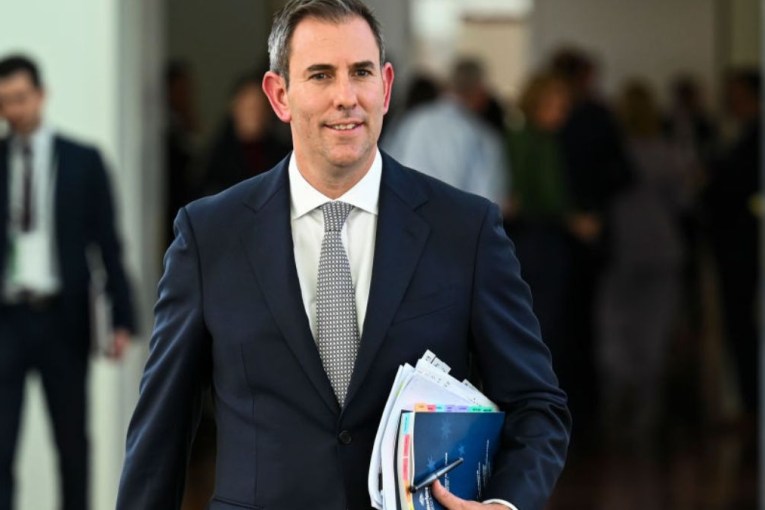Michael Pascoe: Dutton is a populist politician who just isn’t popular


Dutton is a populist politician, without being popular, writes Michael Pascoe. Photo: TND/Getty
Peter Dutton has been getting away with a good line throughout the 22 years he has been in Parliament – that he was a police officer before becoming a politician.
No, he was a politician before, during and after his eight or nine active years in the Queensland Police Service.
He joined the Young Liberals straight out of school and, as mentioned during Annabelle Crabb’s Kitchen Cabinet episode, stood as a 19-year-old against Tom Burns in the 1989 state election.
He was chair of the Bayside Young Liberals while he was at the Queensland Police Academy in 1990.
Two years after quitting the force in 1999, he had pre-selection for the seat of Dickson, which he won in the 2001 federal election. You have to be a politician to get that far – and a dedicated pollie at that – to move up the Liberal Party ranks as quickly as he did thereafter.
The “Queensland copper” story is Mr Dutton’s equivalent of Anthony Albanese’s “log cabin” public housing story.
They are stories that have had influence, but they are not the main story about the men. For both of them, that is politics – politics with all the calculations and compromises necessary to get to the top of their respectives parties.
Some of that ruthless whatever-it-takes was on display in Ms Crabb’s television program.
Confusing justification
“I’ve chosen to play tackle, not touch, when I came into this business,” was the most memorable quote, but it was the broader, half-hearted nature of his sort-of apology for making racist statements that was more telling, along with his confused and confusing justification for voting ‘No’ in the Voice referendum.
The political reality is that Mr Dutton was always going to vote ‘No’, it was just a matter of how he would justify it.
Hence the woolliness of seizing on “the advice of constitutional lawyers”, never mind that the majority and the heavyweights among such lawyers dismiss the ‘No’ scare campaign.
That is similar to the Coalition spotlighting the relatively small minority of Indigenous people who intend to vote ‘No’.
And his claim that the Indigenous people he talks to are more interested in having action than being listened to.
A great one for “someone I talked to”, is Mr Dutton. It’s the sort of line Donald Trump is fond of, the same sort of quality as “they say”.
Mr Dutton told ABC viewers his (over-the-top) “African gangs” claim was made “after speaking to someone in Melbourne”.

Peter Dutton in his days as a police officer.
He said it “didn’t come from a place of hatred”. No, it came from a place of politics – the well-trodden path of the politics of fear that works so well for the LNP base.
(He was at it again in Alice Springs in April. He said children were being sexually abused, well, according to “people he had talked to”. Alice Springs’ problems are devastatingly real enough, but, in my opinion, Mr Dutton’s whistle-stop there was but a political stunt.)
It’s all grist for the conservative hard-right’s mill, the mill Mr Dutton has been working overtime from pre-selection and his snarly maiden speech of unrepented snark.
That speech was nicely summarised by the AFR’s Angus Grigg in the lead-up to Mr Dutton’s leadership tilt in 2018:
The then 32-year-old singled out soft-on-crime judges, civil libertarians, welfare recipients, privacy advocates, unions and refugee campaigners as opponents of middle Australia.
They were, in his view, the “boisterous minority”, bent on political correctness in what he described as Australia’s “over-tolerant society”.
“The silent majority, the forgotten people – or the aspirational voters of our generation … are fed up with bodies like the Civil Liberties Council and the Refugee Action Collective, and certainly the dictatorship of the trade union movement,” he said.
Mr Grigg penned the memorable line that Mr Dutton had “the rare distinction of being a populist without actually being popular” – an observation that continues to be backed by the opinion polls.
But, like Donald Trump, Mr Dutton is all about his conservative LNP base and why, like his National Party colleagues, he was always going to vote ‘No’.
Psychology of denial
As previously opined, the psychology of denial runs deep, the creeds and attitudes handed down through generations, if only subconsciously. Not all or always, but often enough resulting in the inability of much of the conservative base to come to terms with our heritage, with families’ pasts, with the source of our wealth.

Peter Dutton made seafood chowder, with potatoes, for an appearance on Kitchen Cabinet.
I wrote that there are Coalition elders whose grandparents were involved in “dispersal” – the euphemism for genocide – citing the example of former federal Liberal Party leader Alexander Downer, whose grandfather supported and defended multiple massacres in what is now the Northern Territory.
Bloodlines and massacres
If not grandparents, then certainly great-grandparents, or, in Mr Dutton’s case, great-great-grandparents.
According to his Wikipedia entry, Mr Dutton is a descendant of the squattocracy, none less than Charles Boydell Dutton, who was Queensland’s Secretary for Lands in the mid-1880s as colonisation rolled on through the north’s bloody frontier wars.
Two decades prior, what became Charles Dutton’s central Queensland seat had been the site of the Cullin-la-ringo Massacre – the largest single killing of white colonists, 19 men, women and children.
That was in revenge for the murder of Gayiri men by a neighbouring squatter.
And in revenge for Cullin-la-ringo, some 370 Gayiri men, women and children were killed.
Peter Dutton is a long way removed from this great-great-grandfather, born 66 years after his death and with no inheritance of pastoral estates.
The Opposition Leader’s property portfolio only gained the 68-hectare farm featured in Kitchen Cabinet three years ago.
He seems nonetheless to have inherited a hard view of life – none of that “over-tolerance” – with whiffs of the coloniser mindset about it.
His policeman story works well with that, if you buy the Queensland copper cliché.
I know a bit about Queensland police. Aside from more police rounds work than most as a young journalist, I spent my boyhood in Queensland police houses, my father a copper, mainly in the country, with a much longer career than Peter Dutton’s, dealing with more for longer.
It could indeed be hard, but it was not an excuse to become hard, to fall into the cliché. The good ones didn’t.
Dad’s been dead a long time now, but I’d bet a pound to a penny he’d be voting ‘Yes’ if he could.








